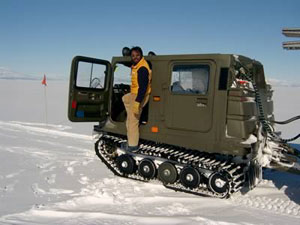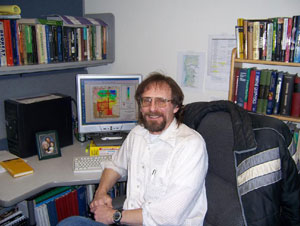Geophysicist
Tasks & duties

Geophysicists may do some or all of the following:
-
study the physical properties of the Earth, including geological layers, oceans and atmosphere
-
study the upper atmosphere and meteorology (weather systems)
-
carry out earthquake research and experiments
-
carry out volcanic research and experiments
-
measure gravity, earthquakes, electrical fields and magnetic fields
-
process data and measurements taken from a global positioning system (GPS)
-
develop computer models of the Earth's crust
-
study the physical properties of rocks
-
study properties of the ocean and its circulation
-
study the physical properties of other planets
-
look for oil, gas, groundwater and mineral deposits
-
write research papers and reports based on the results of their studies
-
present papers at conferences
-
review other scientists' work
-
teach at universities and supervise student research projects
Specialisations
Geophysics is a broad subject and there are many different areas in which to specialise. However, there are three main categories into which geophysics can be divided:
Exploration geophysics
This deals with searching for resources like oil and gas and includes: seismic exploration, seismic interpretation, mineral exploration and engineering geophysics.
Global geophysics
This area of geophysics studies the earth as a whole, focusing on earthquakes and magnetic fields. Some areas of specialisation within this group are: seismology, magnetic exploration and environmental or groundwater systems.
Computer technology
Geophysicists can also specialise in software development and computer processing.
Skills & knowledge

Geophysicists need to have:
-
knowledge of the principles of physics and the geological nature of the Earth
-
practical skills for performing experiments and operating scientific equipment
-
research skills and skill in analysing and interpreting research results and other information
-
problem-solving skills
-
planning and organisational skills
-
communication skills
-
writing skills, for writing reports and for publications
-
maths and computer skills
Entry requirements
To become a:
-
geophysics technician, you need an Honours or Masters degree in physics, geophysics or geology.
-
geophysicist researcher, a relevant Masters degree – although a Doctorate is preferred
Secondary education
A tertiary entrance qualification is required to enter tertiary training. Useful subjects include maths with calculus and/or statistics, and physics.
Tertiary education
All the main universities in New Zealand have geophysics departments.
Training on the job
Geophysicists are always learning new skills on the job, particularly those carrying out fieldwork.
Useful experience
Useful experience for geophysicists includes:
-
work as a computer programmer or mathematician
-
work as a physical sciences technician
Related courses
Geology
Geophysics
For more information, please refer to Career Services.
Document Actions
